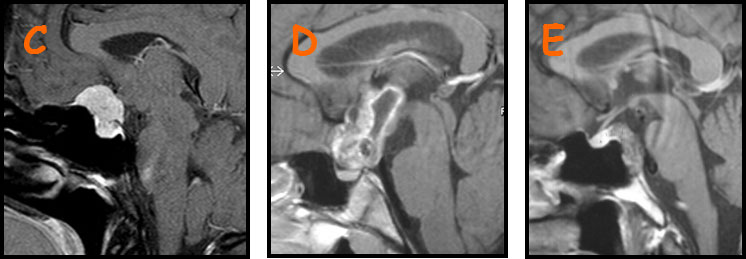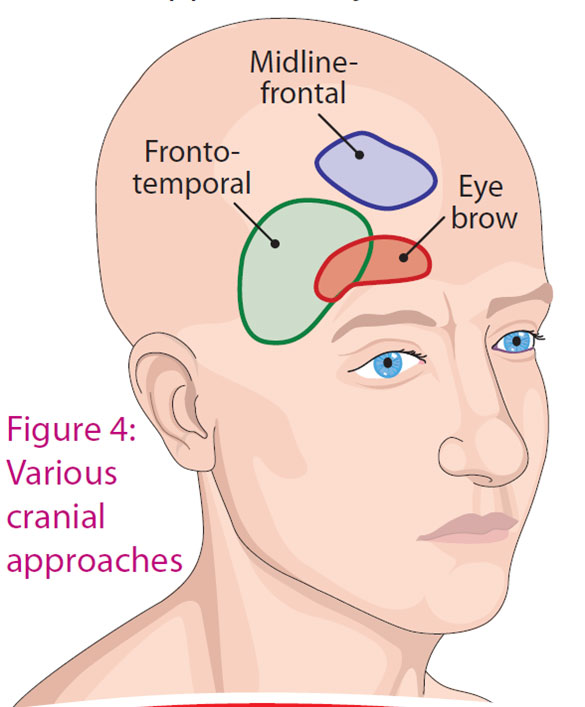Pituitary Surgery In Manchester
The Pituitary surgical service in Manchester is one of the busiest in the country, serving a population of approximately 3.5 million adults and 5 million children. Pituitary surgery is undertaken at both Salford Royal Foundation Trust (SRFT - adults) and the Royal Manchester Children’s hospitals (RMCH - Paediatrics).
We also accept and treat patients referred from outside of the Manchester region, including overseas patients.
The Surgical Team
Pituitary surgery in Manchester is undertaken by the Neurosurgeons, Mr Kanna Gnanalingham, Ms Konstantina Karabatsou and Mr Omar Pathmanaban.
As part of a multi-disciplinary team (MDT), the pituitary surgeons work closely with the endocrinologists across the Greater Manchester region. Other key members of the team include the Oncologists, Neuroradiologists, Neuropathologists, Neuro-ophthalmologists, and the Specialist nurses. All surgical patients are discussed on a regular basis at the Manchester Pituitary MDT meeting, in accordance with NICE guidelines.
Pathologies treated
The pituitary gland is the ‘master’ endocrine organ, which is situated at the base of the brain, at the back of the nasal passages (A).
Although 10-20% of the general population may possess a pituitary lesion most of these tumours remain small and do not cause symptoms. However, a small proportion progresses to cause major neurological (especially visual impairment) and hormonal symptoms (eg Acromegaly and Cushing’s disease).
The majority of pituitary tumours are benign (ie not cancers) and the patients do well with treatment, including surgery, medical and radiation therapies.
Most pituitary tumours are adenomas (B), although a variety of pathologies can be encountered around the pituitary gland requiring surgical intervention, including:
-
Craniopharyngiomas (D)
-
Pituitary apoplexy
-
Inflammatory disease of Pituitary (eg Lymphocytic hypophysitis)
-
Infection of Pituitary (eg Tuberculosis)
-
Cystic lesions (eg Rathke’s cyst)
-
Meningiomas of anterior skull base (C)
-
Metastasis
-
Bony tumours (eg Chordomas, E & fibrous dysplasia)
-
Meningoencephalocoeles
-
CSF leaks of anterior skull base

Surgical approaches
 Pituitary surgery can be undertaken in a variety of ways. More traditional operations through the skull (ie a craniotomy) are far less common these days and are only used when the simpler approaches through the nose (are felt not suitable.
Pituitary surgery can be undertaken in a variety of ways. More traditional operations through the skull (ie a craniotomy) are far less common these days and are only used when the simpler approaches through the nose (are felt not suitable.
Most operations on the pituitary gland in Manchester are now carried out through the nose. This is called trans-sphenoidal surgery. ‘Trans’ means across and ‘sphenoid sinus (SB)’ is the air cavity in which the pituitary gland sits.
Trans-sphenoidal surgery can be undertaken using the keyhole endoscopic technique. This key hole technique is less traumatic and less painful to the patient, enabling speedier recovery and the avoidance of nasal packing.
Moreover, the optical advantages of a fibre optic endoscope, such as a wide-angled panoramic view, sideways views (using angled lenses), and an ability to look from within the tumour cavity may help to improve tumour removal. This approach is also employed in tackling some of the anterior skull base tumours in conjunction with the Skull base team.
Research & Teaching
Manchester has a national and international reputation for both basic science and clinical research in Pituitary pathology, with numerous publications and presentations.
Our surgeons also take part in teaching workshops and offer fellowships for neurosurgical trainees wishing to learn pioneering techniques in Pituitary surgery.
Key publications
Publications on Pubmed
Useful web links
Download Factsheet